From the moment it was first announced as Project A, Valorant started pulling prospective players in. It’s a new tactical shooter to rival Counter-Strike: Global Offensive that also includes abilities from games like Overwatch and Apex Legends. Plus, it’s being developed by the studio that brought us the immensely successful League of Legends, Riot Games. And I haven’t even mentioned one of its most attractive features, Valorant is free-to-play.
Now Valorant has launched globally and (almost) anyone can play it. The question remains: should you?
Where to point your weapon
As mentioned, Valorant has a bit in common with a few games. CS:GO, Overwatch, and Apex Legends all come to mind and have been used to describe it. However, Valorant is definitely a competitor to CS:GO, and not the arcade hero shooter Overwatch or the fast-paced battle royale Apex Legends.
It’s a 5v5 tactical hero shooter. The attacking team is charged with breaching a bombsite and planting an explosive Spike, while the defensive team needs to prevent the Spike from detonating or being planted in the first place. Either team can also simply choose to eliminate all five enemies to win the round. There are 25 rounds in a match, and the first team to win 13 rounds wins.
The basic mechanics of Valorant are simple, and Riot has clearly taken a leaf out of many first-person shooter books to make the game more user-friendly than CS:GO. However, it still has a lot of nuances that give the gameplay plenty of depth. And gives players a lot to work on if they hope to improve and one day master the game.
The magical balance Valorant has managed to strike between ease of entry and depth of skill should be attractive for players. This should include those who wouldn’t consider themselves FPS players. It’s enjoyable and challenging at all skill levels. And there’s always room for you to improve and progress.
Having said that, there are a lot of in-game mechanics not covered in the tutorial — far too many actually. Simple things like the ring around your character on the minimap that shows how far the audio of your footsteps travels. And how shooting while moving makes you less accurate. You’re going to need to trawl the internet to find information on these finer points of the game. Fortunately, there are plenty of guides to fill in the gaps Riot has left.
Precision over power
Valorant places a strong emphasis on the lethality of its weapons. Agent abilities are mostly used as utility – to move unseen, gather intel on your opponents, and block corridors. However, it’s the abilities that add a layer of creativity to Valorant that a game like CS:GO just doesn’t have. It’s a tactical shooter, so you need to be disciplined. But there’s a lot of room for surprises, and that’s exciting.
In my first few matches, I only managed to get five or six kills. I also blinded myself and my teammates more than the enemy. But the gunplay is intuitive and you quickly realize how each weapon handles. For me, the toughest part was trying to remember not to move while shooting — your shots go all over the place if you do this.
You can always visit the shooting range if you’d like to practice executing dummies before live opponents. I spent about 30 minutes doing this before I started my first game because, even if you’re a wizard with the abilities, you’re not going to be able to kill enemies unless you can point your gun straight.
Although shooting is definitely the most important skill to master in Valorant, being creative with your abilities will often win you a fight. While playing Phoenix on defense, I decided to occasionally overextend and surprise my enemies with an aggressive defense. It worked incredibly well. But I had to keep changing my position to prevent becoming predictable.
Tell me more
The agents in Valorant are diverse in personality, style, and ability. The Korean wind-walker Jett is quick on her feet, but even quicker to make sassy comments. I was shocked when I killed the last player on the enemy team, who had been hiding, and Jett piped up with, “There you are you little shit!” It was so unexpected and I loved it.
Then there’s the smooth as can be Phoenix. He lives and breathes flair and style and everything he does just looks good. But he knows it. You can already tell the old dog Brimstone wishes the younger agents would get on with the job and take everything more seriously. Then there’s the interesting dynamic between Sage and Omen – a push and pull between light and dark. But it’s often suggested that the so-called light isn’t as pure as it seems. The Valorant agents are a complex tapestry that adds an engaging layer that I find a lot more interesting than the faceless agents of CS:GO.
Competitive integrity
Riot has made many promises to ensure Valorant maintains what it calls “competitive integrity.” This is a commitment to give players complete control of the outcome of every battle. If you lose, it shouldn’t be because of any technical reason or the enemy player cheating. You should win and lose on your ability alone.
Riot has delivered on its promise to have only 128-tick servers and they make the game feel wonderfully buttery and smooth. That combined with the Riot Direct network, which will eventually allow for all players near major cities to play with 35ms, make Valorant a pleasure to play.
The dark side of the colorful shooter
Valorant does a lot right and it has the makings of a competitive shooter that will be with us for years to come. However, it does have some issues that will cause you to smack your keyboard, throw your headphones, and come up with imaginative curses.
The Valorant anti-cheat, called Vanguard, has been a controversial issue from day one of the closed beta. Riot has made some tweaks to it, but many players don’t like that it constantly runs in the background. You can now disable it when not playing Valorant if you wish. Personally, it hasn’t caused me a single issue. No other games have crashed, and my PC is running the same way it always does.
One of the biggest problems with Valorant, however, is the imbalance in matchmaking. There are veteran, regular, and novice players currently queuing for games and getting matched together. You can already see how this is a problem.
If your team ends up with a few inexperienced players and the enemy team gets a couple of veterans, you’re going to spend the next 30 minutes getting murdered again and again. I like to find positives where I can, but in this case, the imbalance is so vast that you’ll struggle to even learn from your enemies. And when the going gets tough, your teammates get going. I think Valorant needs to more severely punish quitters and players who go AFK.
Thankfully, there is a solution already in the works with ranked matchmaking. After the closed beta, the Valorant team decided to remove ranked queues from the game to ensure everything is in working order and to tweak the formulas a bit. Once it returns, players will be able to find their skill bracket and enjoy much more balanced games.
Valorant vs. CS:GO
I’ve heard people saying that Valorant isn’t as difficult as CS:GO. It’s a fair criticism if you’re coming from Valve’s popular shooter. But I think accessibility is one of the things that makes Valorant so attractive. It’s not tough to get into, and the learning curve is forgiving, sans the time you might blind yourself. And I feel the skill ceiling is high enough that the best players and teams will stand head and shoulders above the rest. Plus, as more agents and maps get added, Valorant’s depth will grow and the skill ceiling will rise.
The lack of maps will be felt by the most dedicated players fairly soon, however. The agents less so because there’s a lot more of them and each one has a unique playstyle. But four maps is a far cry short of what’s available in CS:GO and knowing how much some people will play (myself included), they’re going to get bored of the limited options fairly quickly.
Something that will occasionally cause you to curse is the randomness of extended spray patterns. CS:GO has fixed spray patterns for every weapon. You can grind them into your brain and muscle memory until you can aim your weapon perfectly with every spray. This isn’t the case in Valorant. You can fire accurately for a few bullets, but after about six shots, your spray goes wild and you need to get lucky to land your shots. I suspect this mechanic will bother me (and players coming from CS:GO) a lot less once I adapt my gameplay to it.
Hello, is it me you’re looking for?
Alright, I think you’ve heard enough to answer the question I posed over 1,000 words ago. Should you play Valorant? If you’ve ever wanted to try a competitive shooter, this is the one to try. You’ll get a handle on the gunplay soon enough and the abilities are incredibly fun to use. Plus, there are loads of other new players getting into the game now. So, the skill level is as low as it will ever be. You can learn with the other FPS newcomers.
Valorant will challenge you mechanically, tactically, and creatively. But gameplay aside, the characters will win you over. I guarantee you’ll have a favorite by the end of your first week playing. Valorant is at its best when matches are competitive. Two highly-skilled, evenly-matched teams need to dial up the creativity if they hope to outplay their opponent and win. When the gameplay reaches that level, it’s an absolute joy to play and watch. I’m not at that level, but I aspire to get there. As the world of Valorant grows and evolves, I plan to do the same.

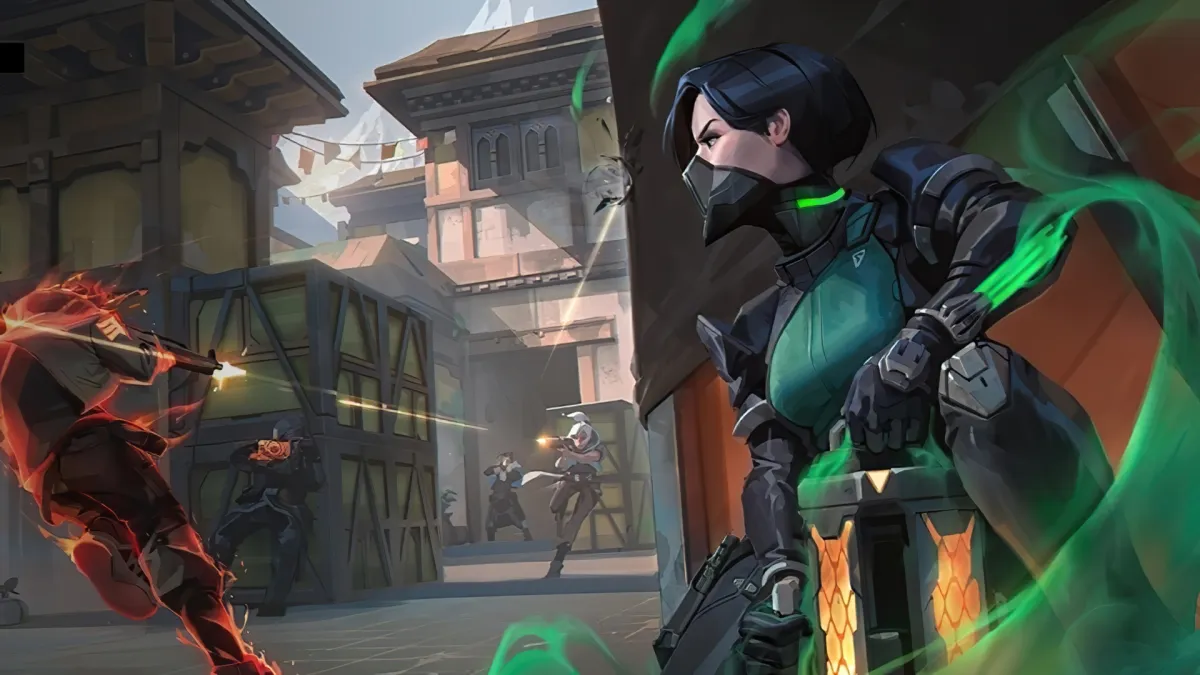
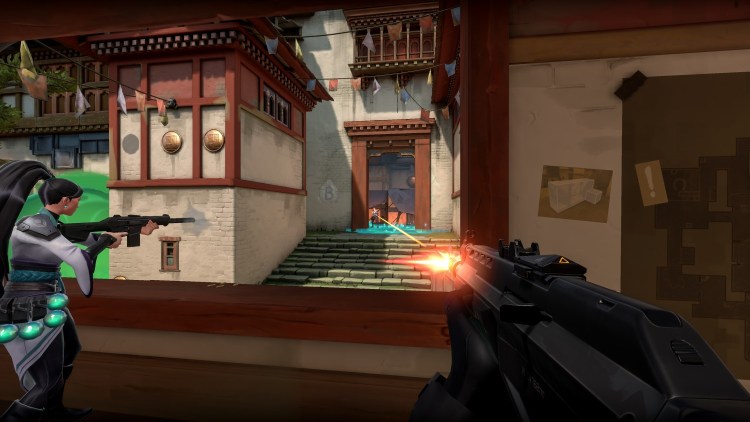


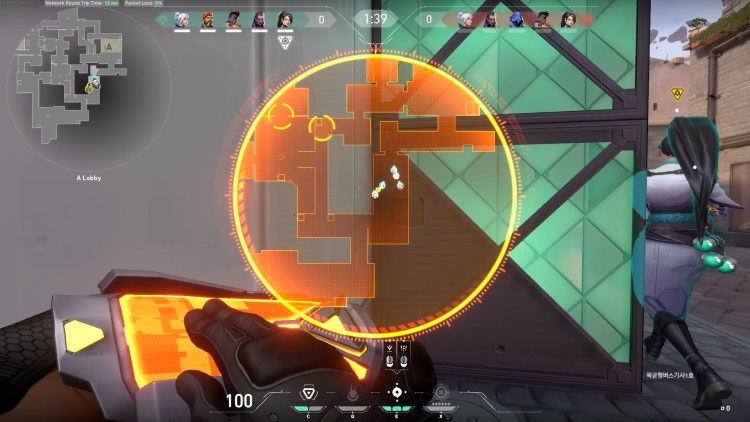
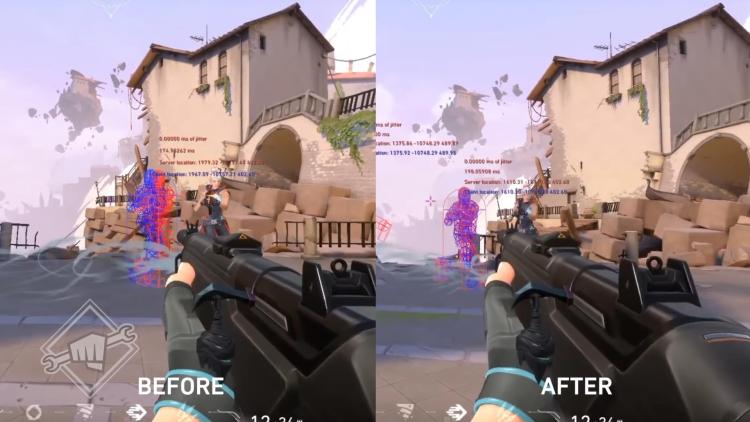
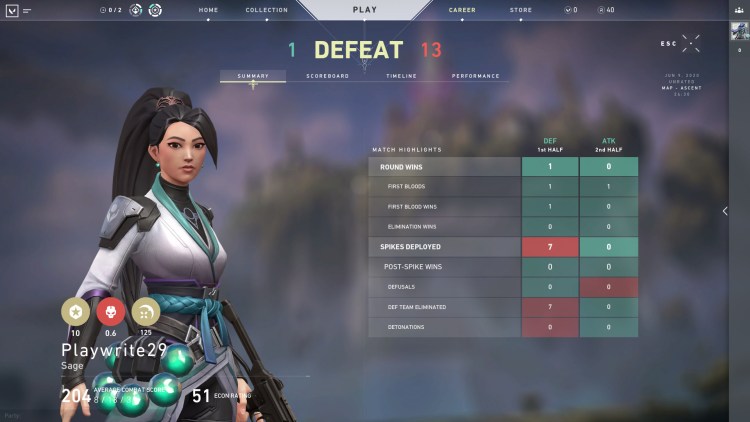
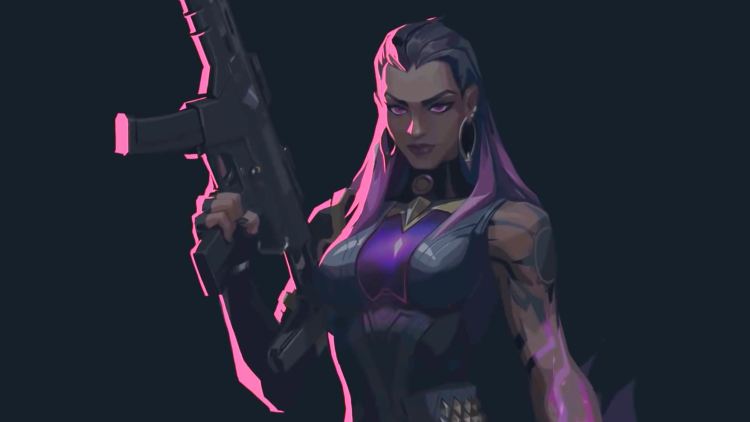





Published: Jun 12, 2020 06:00 pm